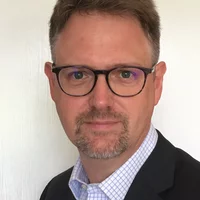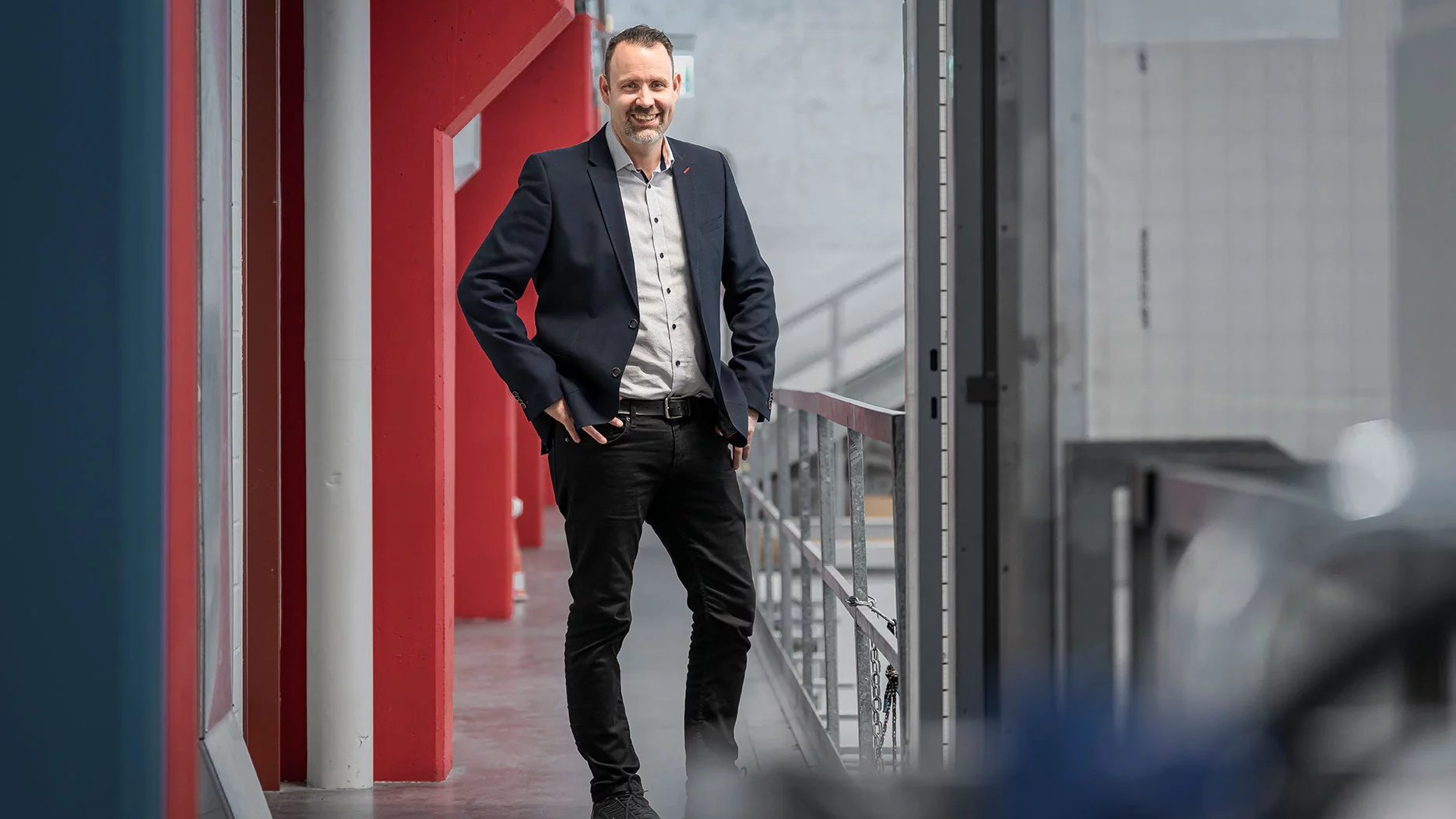Markus Jörg is head of Infrastructure and Electrical Installation Department at the Paul Scherrer Institute PSI. In this role he is responsible for ensuring PSI and its large research facilities are always supplied with the electricity they need. In this interview, he explains how PSI is continuously improving its energy efficiency and preparing for possible power shortages this winter.
Mr Jörg, would you say PSI is already energy efficient?
Markus Jörg: For us, efficiency primarily means an optimal energy/usage relationship, which is therefore linked to the value of the product created. However, rather than manufacturing a traditional industrial product, our job is to produce important research results. These results are often the product of scientific experiments that cannot be performed anywhere else in the world and have an immense value. In that sense, yes: I’d say we’re very energy efficient.
And in its own right, how well is PSI doing – as an institute with several large research facilities?
When the Swiss Light Source SLS was first conceived over 20 years ago, for example, its design and construction were already comparatively compact and energy efficient. The upgrade project SLS 2.0 which is currently underway will significantly improve the intensity of the synchrotron light at the experimental stations from 2025 onwards, while at the same time reducing energy consumption by 30 percent. That’s an enormous improvement in energy efficiency, made possible mainly by using the very latest technologies. For example: we are switching from electromagnets to permanent magnets, using energy-saving semiconductor amplifiers and optimising the entire cooling infrastructure, among other things with heat recovery processes. In addition, the roof of the SLS building is to receive a photovoltaic system. Accounting for this, the energy balance of the SLS will drop by as much as 35 per cent.
We are also constantly upgrading in other areas: the cooling units needed for several large research facilities and a number of laboratories at PSI used piston compressors in the past. We are currently replacing these with a new technology consisting of screw compressors and modern turbines in so-called ‘cold boxes’. This set-up reduces previous energy consumption by more than half.
So PSI is not only researching novel technologies, but using them in its own facilities?
That’s right. Being energy efficient is part of our DNA. Thanks to all the optimisation to our existing large research facilities and the associated infrastructure, there was no significant long-term increase in PSI’s overall energy consumption when SwissFEL was commissioned in 2016.
PSI also has lots of office space – what’s the situation there?
Energy-saving programmes have been running right across PSI for many years. Take the hall in front of my office, for example: the fluorescent tubes have now been replaced with LEDs and connected to an intelligent brightness sensor. At the same time we’re aware that our large research facilities account for three quarters of PSI’s total energy consumption. But no matter how big or small: if an upgrade saves energy in the long run, we will implement it. Here we often get support from the government’s “ProKilowatt” programme, which has already helped us make various investments, some of which only pay off after a decade or so.
A more pressing issue: how is PSI preparing for potential energy shortages this winter?
We’ve thoroughly analysed the current situation and are prepared for all possible scenarios. Last summer, OSTRAL, the Swiss Organisation for Supply of Electricity in Extraordinary Situations, already declared the second level of readiness – out of a possible four levels – whose purpose is to prevent a blackout. So we are now at a higher alert level, with an appeal to all consumers to save energy. If the threat is raised to the third level of readiness, the government would require PSI, as a large consumer, to reduce its power consumption by a specified amount. Faced with this scenario, we have already decided which critical systems we would continue to operate. For example, we would not shut off the power to our Center for Proton Therapy and thus ensure cancer treatment can continue as normal at PSI.
So we’re already at the second level of readiness. Will PSI respond to the appeals to reduce consumption?
Sure: we’ve already reduced outdoor lighting on the campus, for example. Of course we’ve been careful to only do what is feasible without compromising safety. Since many smart people work at PSI, we have also sent out an internal request for any other energy-saving ideas and set up a competition: the PSI Energy Award. We’ll award a prize to the best and most effective suggestions – and we’re responding individually to every proposal. Additionally, me and the people in my department are taking a close look at the large research facilities, since any optimisation we achieve there can have a significant impact.
Could you make any more savings there?
These facilities themselves are already optimised. But we have recently found that we could still change things when we focus the priorities entirely on saving energy. Thus, at SwissFEL we have now defined different operating modes and are now grouping together experiments that require the same beam characteristics. This allows us, for example, to temporarily shut down parts of the linear accelerator that are not required.
Will some of the current energy-saving measures at PSI still be in place even after this winter is overcome?
I definitely think so. Electricity costs are likely to remain high in the long run. The production of renewable energy and its storage needs to be ramped up. Purely on cost grounds, we therefore have an interest in reducing energy consumption wherever possible. And as a research institute we also want to fulfil our social responsibility. On the one hand we already switched completely to hydroelectric power in 2020, thereby significantly reducing our carbon footprint. But we could still do more. We are continuously expanding heat recovery processes on our facilities. We have already installed four photovoltaic systems on the roofs of our buildings and have concrete plans to fit more.
Interview: Paul Scherrer Institute PSI/Laura Hennemann
© PSI provides image and/or video material free of charge for media coverage of the content of the above text. Use of this material for other purposes is not permitted. This also includes the transfer of the image and video material into databases as well as sale by third parties.
Contact
Markus Jörg
Head of the Infrastructure and Electrical Installations Department
Paul Scherrer Institute PSI
+41 56 310 50 08
markus.joerg@psi.ch
[German, English]
Further information
- Preparing for energy shortages and blackouts – Interview with Peter Burgherr, 13 December 2022
- Many paths lead to the energy future – Article of 4 October 2022

